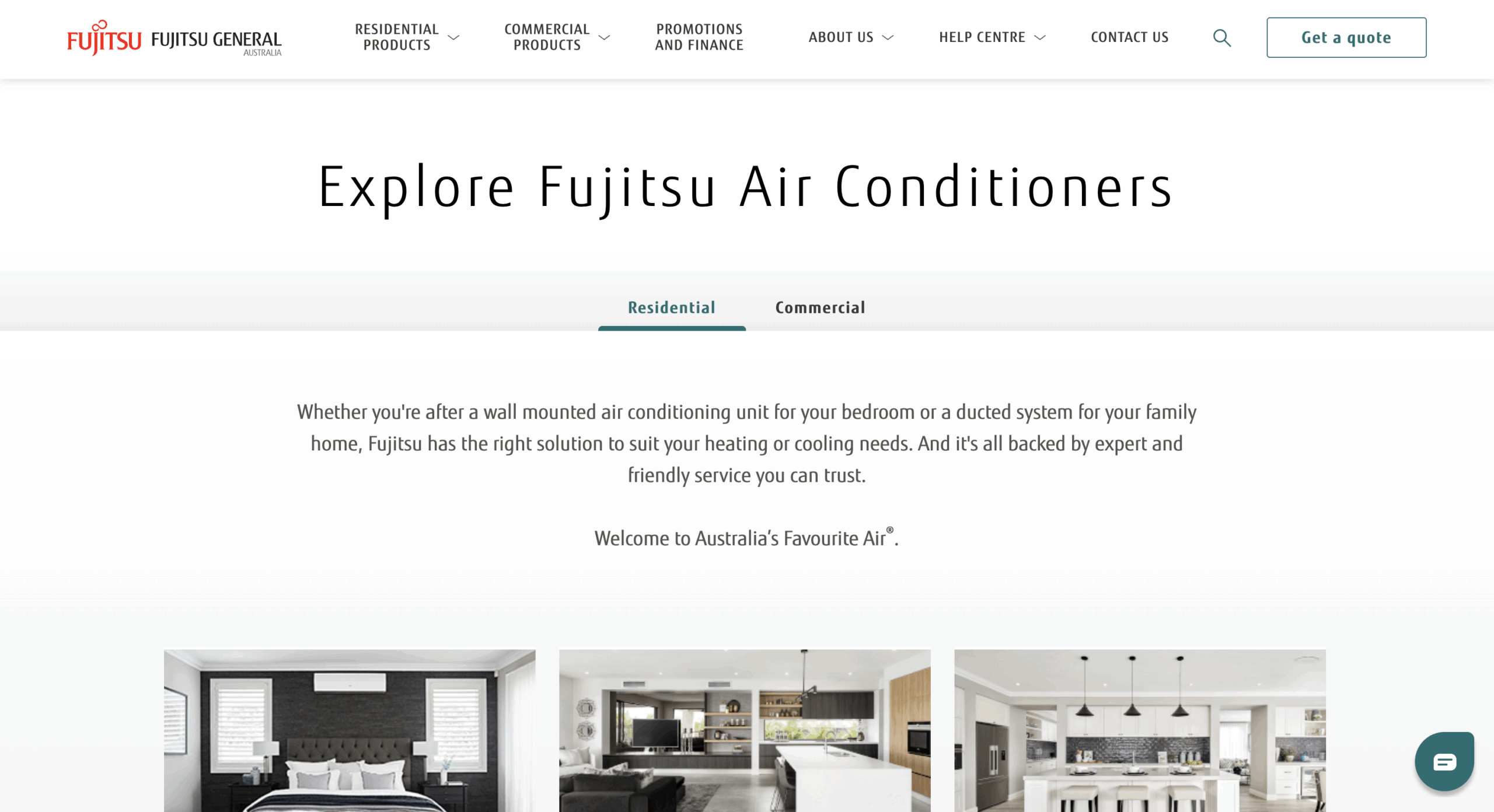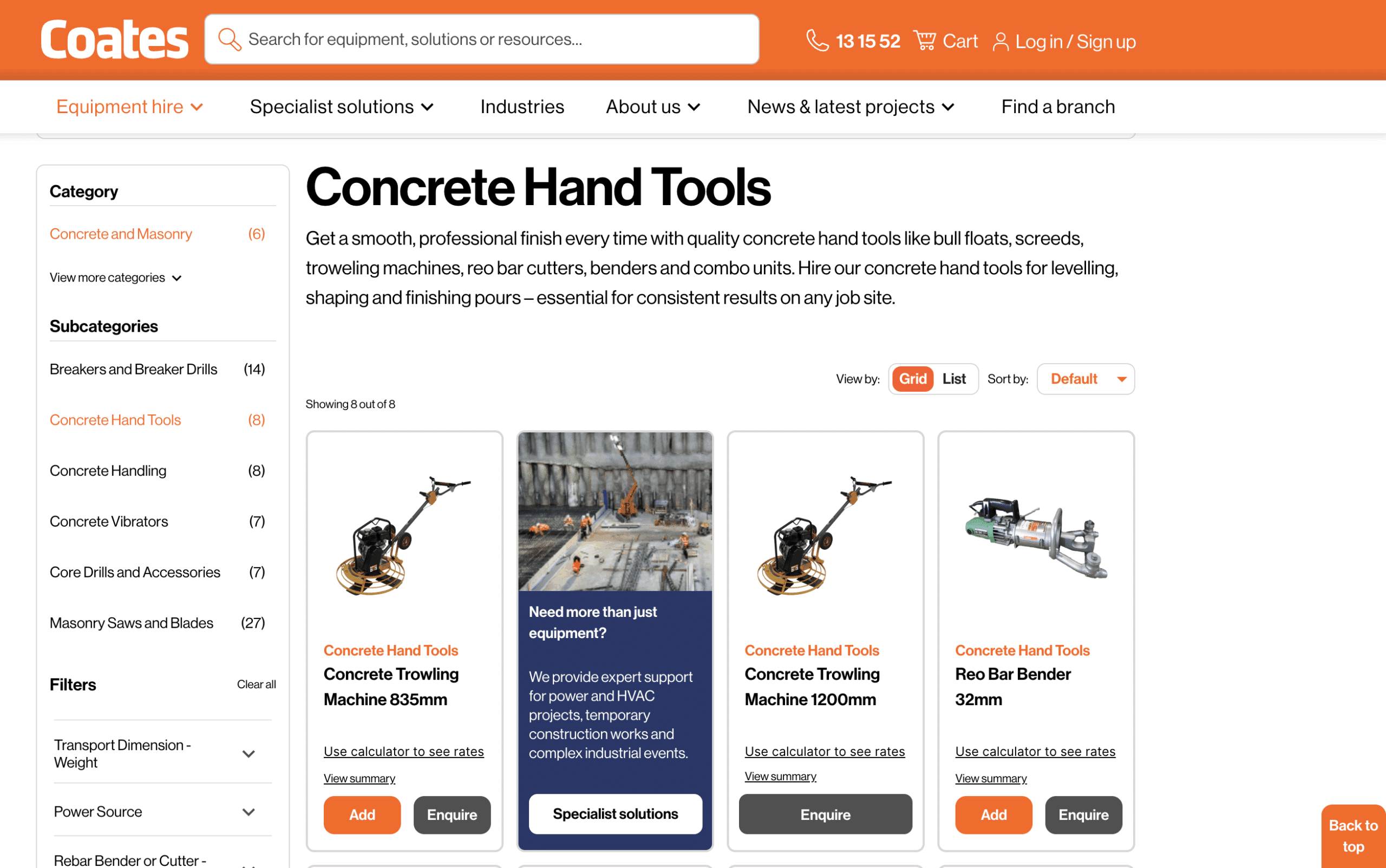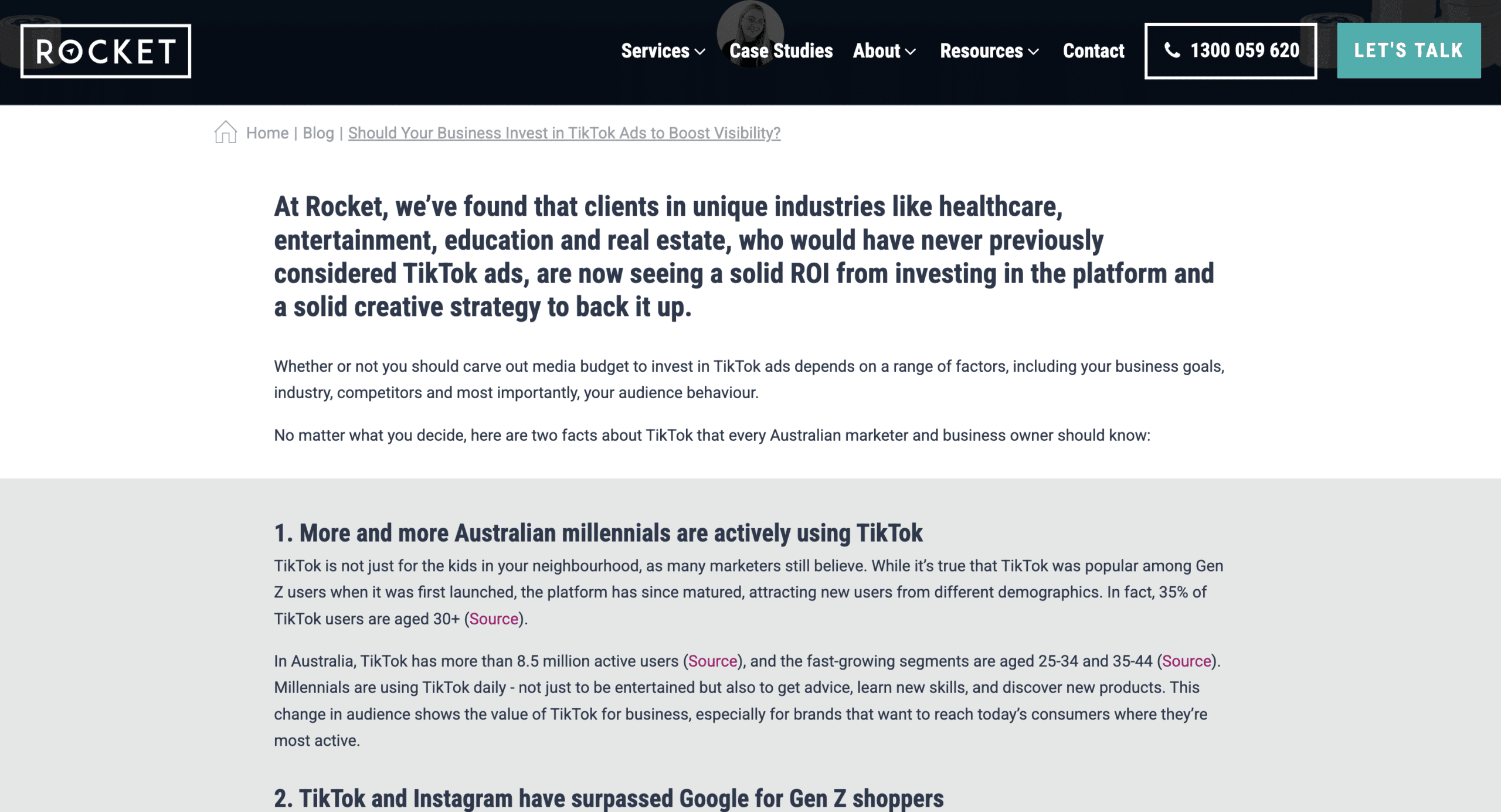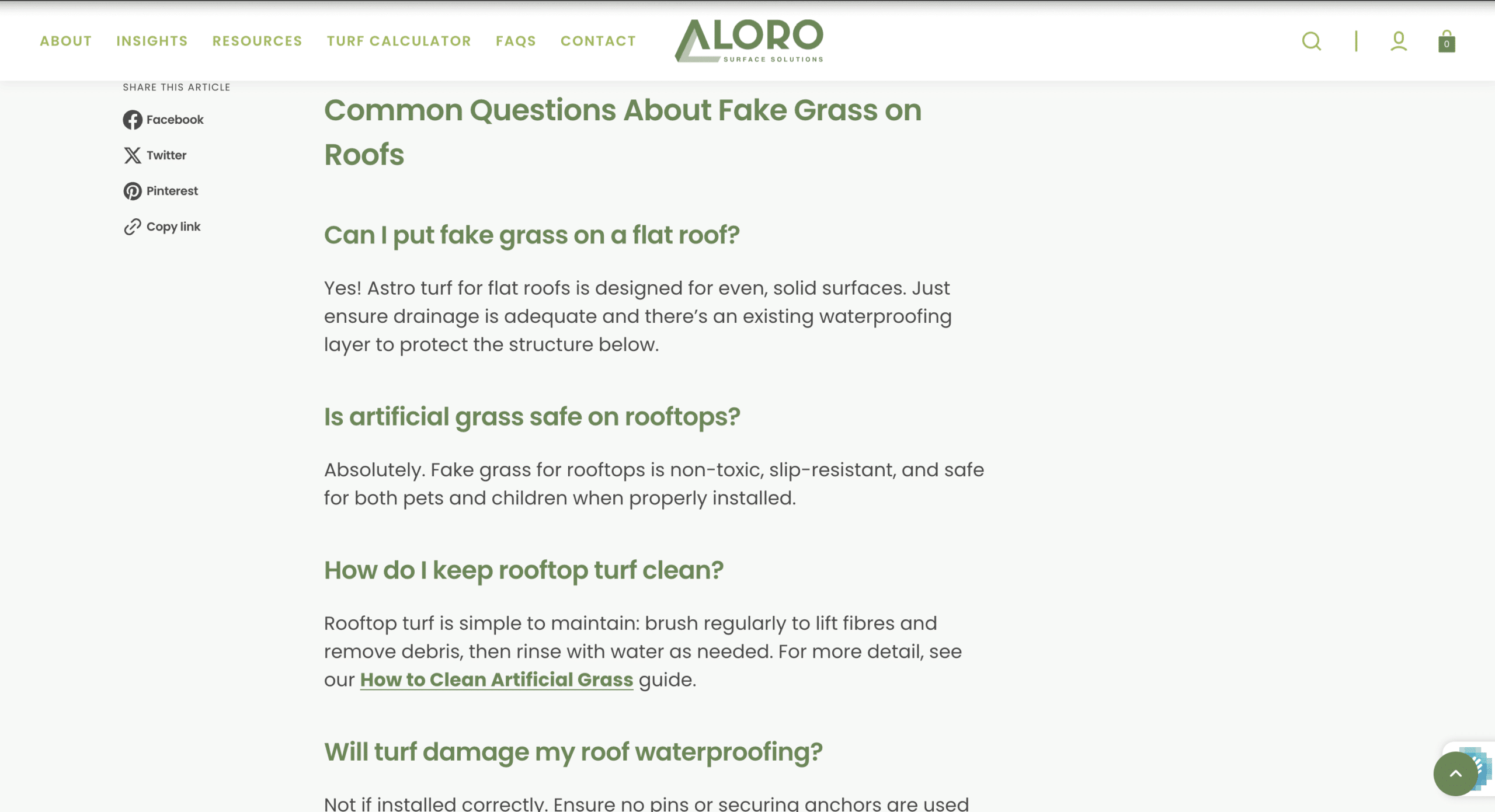How to Structure Content for AI SEO
To appear in AI search and traditional search engines, every section of your page should answer a genuine user question, stand alone as a snippet and be built for skimmers.
Why page structure matters in AI Search
AI search has changed the way content is discovered. Instead of just indexing your site, tools like ChatGPT extract and cite content directly in answers. For marketers, this means you need to refresh the way you structure content. When executed well, an optimised page structure can help place your brand in front of buyers at the exact moment they’re asking questions in LLMs like ChatGPT. Otherwise, you risk your competitors owning the conversation.
At Rocket, we’ve tested and refined this approach across clients from multiple industries such as SaaS, eCommerce, property, retail and more. Here’s what we recommend when it comes to creating webpages that win in AI search.
How to build an AI SEO-optimised page
1. Use a clear structure
Like users, AI looks for clarity. Every page should follow a predictable structure so the key points can be pulled quickly:
- Title tag: Phrase it as the question you want to own.
- Meta description: Provide a direct, concise answer.
- Intro paragraph: Lead with a TL;DR summary that can stand alone, if extracted.
- H2s and H3s: Break content into sub-questions.
- Snippable paragraphs: 50–70 words each, written in a declarative tone.
- FAQs: Cover long-tail queries.
- Expert profile: Add authority with author bios and credentials.
2. Lead with real answers
Both your audience and AI platforms want direct answers upfront. Structure content so the first sentence under each heading provides a clear response.
Example: Fujitsu General, Australia
The Fujitsu page leads with a clear, declarative answer: what product it is, who it’s for, and why it’s trusted. This makes it highly “extractable” for AI platforms - the first line under the heading gives a direct response. It’s also customer-centric, showing how the content is structured around real questions buyers ask.

3. Write snippable content
Short, self-contained answers increase the likelihood of being surfaced in AI responses. Keep every block of copy concise, clear, and useful.
Example: Coates
The Coates “Concrete Hand Tools” page demonstrates perfect snippability. Each product category has a short, stand-alone explanation (50–70 words) that can be lifted directly by AI tools. The modular blocks also help skimmers quickly find information easily.

4. Add authority signals
AI tools favour credible sources. Strengthen your content with signals of expertise.
Example: Rocket Agency Blog
This section cites external research (Search Engine Land, Forbes, Grin) and includes hard numbers about TikTok usage. By combining third-party data with commentary, it signals expertise and credibility, which is exactly the kind of authority that AI platforms prioritise when selecting sources.

5. Use FAQs to capture more queries
FAQs signal breadth and give AI multiple angles to extract from. Each answer should be short, complete, and ready to be lifted directly.
Example: Aloro
The Aloro FAQ page shows how FAQs can answer very specific, niche queries (“Can I put fake grass on a flat roof?”). Each response is short and ready to be included directly into AI answers. It also mirrors how people naturally phrase search questions, which broadens coverage.

Common questions about AI SEO content structure
Q1: Do I need to rewrite all of my existing content for AI search?
No. Start with your most valuable pages and optimise them first.
Q2: Should every page include an FAQ section to rank in AI search results?
Yes. Even 2-3 FAQs can improve extractability and coverage.
Q3: For AI search, how short should a snippable paragraph be?
Keep it between 50–70 words with one clear idea per block.
Q4: Do expert profiles really make a difference?
Yes. Author bios and expert commentary improve credibility for both users and AI.
Q5: What content formats work best for results in AI search?
Lists, FAQs, comparisons and original data-backed content.
Q6: In AI search, how often should I refresh content for?
Refresh high-value pages quarterly to keep data current.
Q7: Can AI extract answers from gated or paywalled content?
No. Content must be crawlable and accessible to be surfaced.
Q8: Is schema markup still relevant?
Yes. While ChatGPT relies less on schema, other AI platforms still use it.
Q9: Should I optimise for AI or traditional SEO first?
Both. Traditional SEO builds the foundation and AI optimisation builds on top.
Q10: How do I measure if my content is working in AI search?
Look for citations in AI answers, track lead data, and monitor share of voice.
Q: Will AI search tracking get easier?
A: Yes. More platforms are working on attribution, and Rocket will update our methods as tools improve.
Q: What’s the best next step?
A: Add “AI/ChatGPT” as a source on your forms, and review analytics for direct traffic patterns.
The AI SEO content checklist
- Query-style title: Frame your title as the exact question you want to rank for.
- Direct meta description: Provide a concise answer that AI can lift.
- TL;DR intro paragraph: Lead with a short summary that works if extracted alone.
- H2/H3 sub-questions: Break content into logical, question-led sections.
- Snippable 50-70 word sections: Write paragraphs that can stand alone and be cited.
- FAQs for long-tail coverage: Anticipate and answer related questions explicitly.
- Author bios and authority signals: Add profiles, credentials and expert commentary.
- Data and examples: Include stats, case studies and original insights to boost credibility.
- Fresh updates: Refresh high-value pages quarterly to keep content relevant.
- Accessible formatting: Ensure content is crawlable (no heavy JavaScript, no paywalls).
You can also download the checklist here.
Final thoughts
AI and LLM search are rewriting the rules of digital marketing. While attribution is still catching up, the brands that start adapting now will be first to capture new leads as search evolves.
Keen for your brand to be the one AI search recommends? Our award-winning SEO experts would love to help. Get in touch.
About the Author

Joe is an award-winning SEO leader with a proven track record of scaling high-performing teams and delivering measurable results. Joe has driven organic growth for global brands like Amazon, Coca-Cola, ANZ, and Dulux through innovative strategies and data-driven insights. With over 20 industry award nominations - including Best SEO Agency APAC 2024 and Best SEO Campaign - Joe is recognised as a leader in the field. Passionate about building impactful teams and exploring the transformative role of AI in SEO, Joe brings a forward-thinking approach to digital marketing at Rocket Agency.








































